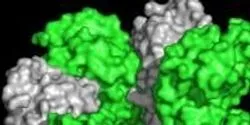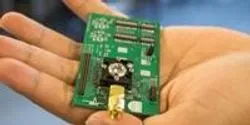All by University of Virginia
Filter by
AllArticlesAudioEbooksEventsInfographicsNewsProductsSurveysDocumentsVideosVirtual EventsWebinars
In a finding important for preventing the development of antibiotic-resistant superbugs, researchers at the University of Virginia School of Medicine and 22 other institutions have determined that the duration of antibiotic treatment for complicated abdominal infections can be cut by half and remain equally effective.

In a stunning discovery that overturns decades of textbook teaching, researchers at the University of Virginia School of Medicine have determined that the brain is directly connected to the immune system by vessels previously thought not to exist.

Kyle Lampe, an assistant professor of chemical engineering in the University of Virginia’s School of Engineering and Applied Science, is growing cells in three-dimensional hydrogels, an environment closer than petri dishes to how cells grow on their own. He can control the hydrogel’s softness or stiffness, and by raising the cells in a three-dimensional solution, the cells react more closely to how they would in nature

New research from the University of Virginia School of Medicine has shed light on how chronic stress and obesity may contribute to type 2 diabetes. The findings point the finger at an unexpected biological perpetrator – the breakdown of fat.

When it comes to the future of medicine, small is indeed beautiful. Working at the nanoscale, tens of thousands of researchers are in a race to develop tiny nanoparticles, nanodevices and nanopatterned surfaces for medical applications. Their goals are both comprehensive and ambitious. They are hoping to create drugs that stop disease processes at the molecular level where they start, engineer drug delivery systems that are small enough to reach deep within the body and build scaffolding and textured surfaces that the body can use to regenerate lost or damaged tissue.

Its name is Rivanna, and it’s the University of Virginia’s new $2.4 million Cray computing cluster, a high-performance machine – really a combination of linked high-power computers (hence, “cluster”) – designed to greatly enhance and establish computationally intensive and data-intensive research at the University.

The number of women being trained to enter engineering, science and social science academic careers is not the cause of female underrepresentation in those fields, attendees at a University of Virginia seminar on faculty hiring learned last week.
















